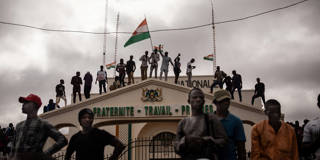The Growing Sahel Crisis
The military coup in Niger last month was not an isolated, one-off event that the rest of the world can afford to ignore. West Africa is now at greater risk of a breakdown in governance, a development that would open the door to further expansion of extremist jihadist movements across the region.

STOCKHOLM – In recent years, domestic developments in Niger – indeed, across North Africa’s Sahel region – scarcely attracted attention from the wider world, except in Paris, where French policymakers still took an interest in Francophone Africa. But the military coup in Niger on July 26 has changed everything.